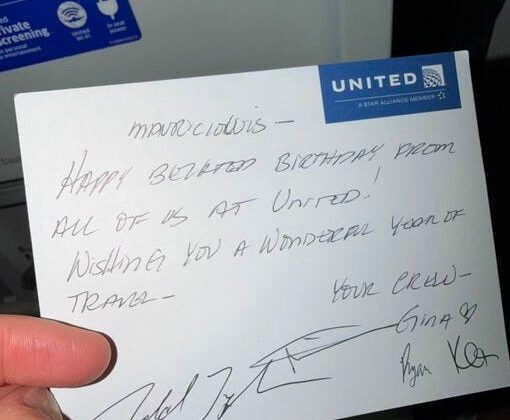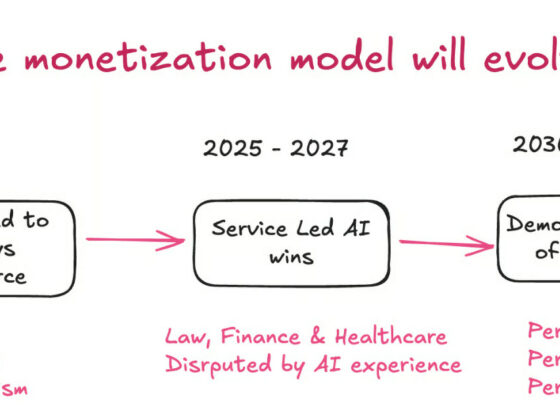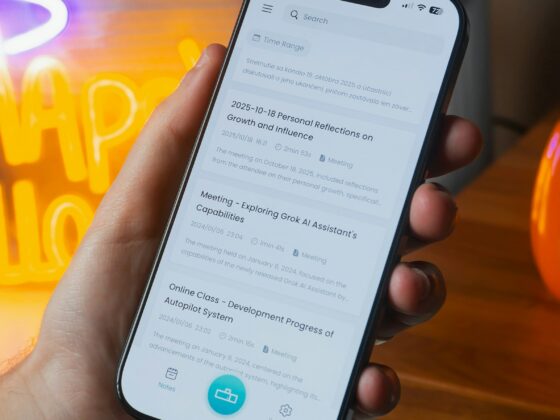When it comes to revenue management technology, few voices carry the authenticity and experience of Adrienne Hanna, Founder and CEO of Right Revenue. With over three decades in the travel and hotel industries, Adrienne made a bold leap into technology entrepreneurship in her late forties, driven by a passion to empower independent hotels with tools once reserved for large brands.
Adrienne shares her perspective on the evolution of revenue management, the leadership lessons that have shaped her as a founder, and why the human touch still matters in an increasingly automated world.
Takeaways
Independent hotels deserve smart technology: Right Revenue was built to empower small and independent properties with enterprise-grade tools.
Culture drives success: Integrity and kindness can be commercial strengths in leadership.
Automation must be balanced with intuition: AI supports decisions but cannot replace human experience.
Revenue management is collaborative: Cross-department alignment is critical for sustainable profitability.
The future is human: Even in an automated world, personalized service remains hospitality’s greatest strength.
From hotelier to tech founder
You launched Right Revenue after nearly three decades in hospitality. What inspired you to make that jump into hospitality technology, and how did your background as a hotelier influence the way you built your company?
Three decades? Gosh, when you say it like that, I am so old! But seriously, hospitality is in my blood, and my happy place is sitting in a hotel reception. I have worked in most departments, predominantly sales, until I was lucky enough to fall into the world of revenue around 1997. That was quite early on, I guess, and I was lucky to be exposed to and inspired by a great Revenue Manager in Hilton Belfast. I fell in love with revenue displacement, exponential smoothing, cost of acquisition, and incremental spend, and I was hooked.
It was a time before OTAs, and distribution was in its infancy, so I am very lucky to have evolved in a very fast-paced environment as the industry evolved. I moved into revenue tech around 2001 and worked for EasyRMS, but I was well aware that most hotels back then had a very limited understanding of what revenue management was. Even then, I knew we had to help hotels change their thinking. I took the plunge and started a consultancy called Alternative View to help hotels move into a revenue-managed culture. I did that successfully until around 2017, when I realized I could help more hotels by automating data extraction and decision-making in real time.
The branded hotels had that, so why could independent hotels not have it too? I identified a gap in the market within an industry I was passionate about. Hence, Right Revenue was born.
Identifying industry gaps
Right Revenue was born out of a problem you identified in the industry. What gap in hotel revenue management did you set out to fill with your platform, and how does that mission continue to guide your innovation today?
I always felt that we had incredible independent hotels offering guests amazing service and authentic experiences, but they were left behind the brands when it came to technology and strategy. I wanted to design a solution that was easy to use, visual, clever, and most importantly, useful. The people working on rates in these hotels were what we call ‘also Revenue Managers’ because they wore many hats. They needed technology that did the heavy lifting, with algorithms predicting demand and recommending rates, but in a way that was not daunting.
We make great revenue decisions, and that is our ethos. That philosophy continues to guide everything we build at Right Revenue today.
Leadership as a Founder and CEO
As a first-time founder and CEO coming from the hotel world, what key leadership lessons have you learned? How have you navigated the transition from managing hotel operations to leading a tech startup team, and what has surprised you most about that journey?
Gosh, that is a great question, and I continue to learn every day. I learnt early that company culture and ethos are everything. I was initially daunted by the prospect of building the right culture, but I soon realized it begins with how you treat people, your team, and your hotel partners. When you build a company based on integrity and authenticity, everything else falls into place.
I have learnt that being kind can be commercial. My team and our hotel partners achieve great things every day, and I am privileged to be part of that. We proudly say we are not a tech company. We are hoteliers, a team of experienced revenue managers backed by great technology.
Evolution of revenue management
In your opinion, how has revenue management in hospitality evolved over the past decade or two? Are there any traditional practices that hotels should retire, and what new approaches or metrics (e.g., GOPPAR, TRevPAR) should modern revenue managers be focusing on to drive profitability?
When I first fell in love with revenue management, the revenue manager sat alone in a corner with spreadsheets and no voice. That has changed. Today, revenue managers not only have a seat at the table, but they are often at the head of it. Strong commercial leaders now oversee all departments, which is key to success.
However, some hotels still set rates based only on occupancy or comp sets. That is lazy revenue management. And while automation helps, hospitality remains a people industry. Great systems run the math, but great leaders create the strategy. The excitement in revenue management will be in M&E, spa, golf, and F&B. That is where the magic will happen.


The “Also Revenue Manager”
Right Revenue is built for what you call the ‘also revenue manager’. What challenges does this person face, and how does your system support them?
These ‘also Revenue Managers’ are often promoted because they know the hotel and guests best, but they often lack training. That is why we designed our own Introduction to Revenue Management course and partner with Revenue Academy and HOSPA. We also place a heavy focus on customer support and mentoring.
Operationally, they wear multiple hats, so they need a revenue solution that clearly presents data and provides actionable insights. Our dashboards are bright and simple, key reports are easy to access, and rate recommendations are front and center. Every recommendation has a natural language explanation. We also built Calculate Hub, a suite of tools for profit prediction, displacement, and rate analysis. We designed it all with the ‘also Revenue Manager’ in mind.
Breaking down silos
Why is it critical for revenue management to integrate with marketing, sales, and operations?
Revenue Management must be at the center of everything you do. It touches every part of your business, from check-in to marketing campaigns to sales strategy. Dropping rates does not stimulate demand; marketing does. Sales and Revenue must work together toward shared goals. Leadership must ensure that all departments are aligned around one consistent commercial strategy.
Technology, AI, and the human touch
How do you see AI and machine learning changing revenue management, and where should hoteliers still trust human intuition?
Without an opinion, you are just another person with data. Without data, you are just another person with an opinion. That quote sums it up. AI is part of our lives now. Revenue Management systems have always used machine learning, and AI is the next step. But I am wary of companies who sell AI as magic without substance. Technology is powerful, but it cannot replace human intuition. We must combine data with experience and context to make the best decisions.
For independent hotels, distribution can feel overwhelming. How should they approach it in 2025?
The lines between marketing and distribution are blurring, but most revenue professionals are now well aware of that. The key is strategy and patience. Moving your OTA reliance from 70 percent to 40 percent is not a process that happens overnight. It needs a long-term plan led by revenue and supported by every department.
Review where your bookings come from and where you want them to come from. Your RMS should help manage the business mix. Doing this manually is time-consuming and can lead to errors, but modern hospitality revenue management technology can simplify and optimize those decisions.
Misconceptions in revenue management
What misconceptions do you still see about revenue management or adopting new technology?
Even today, some hotels will spend thousands on kitchen equipment but hesitate to invest in revenue technology that can actually drive profit. Thankfully, that mindset is changing. Technology is no longer optional; it is essential. My advice to hoteliers is to map out what they have, what they need, and what is non-essential. There are no perfect systems for everyone, but there are perfect solutions for individual hotels.
Lessons from a founder’s journey
Looking back, what moments shaped your approach to business and leadership? For instance, was there an “aha” moment or failure that taught you an invaluable lesson in hospitality or business leadership?
There have been many ‘aha’ moments and equally as many ‘oh my goodness’ moments. I guess for me, and again, I say this with pride, Right Revenue started as a tool to help me do my job better. It thankfully morphed into something far more exciting, but the goal of simply helping and supporting independent hotels has never changed. I guess that was ‘aha’ moment number one – never to deviate from the vision I started with.
Next was to only ever employ people who are better than me. People who get the vision and who want to come along for the journey. I haven’t always got that right, but I absolutely get it right a lot more often than I get it wrong, hence I have an amazing team that our hotel partners constantly reference as part of the reason they love us as a solution.
The next lesson I learned was to cultivate a culture where it was okay to say ‘I have failed or I have made a mistake’. I have made multiple mistakes in the past (as I said previously, I am not a techie, so in the early days I made some regrettable mistakes with tech) But I got the right people in the team with the right expertis, we steadied the ship and with an open culture where we support when things get challenging and celebrate our wins, we have an environment where we just get stuff done!
Future of hospitality
What excites you most about the future of hospitality technology?
my prediction is that there will be a lot more AI in our lives and a lot more tech generated customisation and automation but the flip side of that is that I feel that there are a lot of people out there (and I include myself in this, and conversely my 25-30 year old children’s generation) who will pay NOT to have that automation. There will be a whole segment of people who will pay for human interaction and a personalized service, so please don’t rush to automate everything; not everyone wants it!
We have also seen it emerge (after the pandemic) that our guests want an experience. They want to feel valued and listened to, with a product and rate choice that is almost tailored to them. As hoteliers, we must recognize this and ensure we understand our guests’ needs and respond accordingly.
Regarding tech, we have seen a lot of M&A in our industry; not all of these transactions have been without their challenges. However, I hope hotels will again consider their individual needs and recognize that it is okay to choose ‘best of breed’, rather than putting all their eggs in one basket. It is always best to prioritize what’s truly in your best interest and avoid getting distracted by what is sold as the latest, greatest thing.
We work in the best industry in the world, and if we allow our amazing revenue professionals the headspace to review the constantly evolving world of tech and, more importantly, our customers’ needs, there is a lot coming and a lot to be excited about. The future really does belong to those who see it coming
Final words
Adrienne’s journey from hotelier to tech founder reflects the heart of the hospitality industry: innovation rooted in empathy. Her vision for hospitality revenue management technology reminds us that while systems and algorithms can power data, it is the people who bring it to life.
As the industry continues to evolve, Adrienne’s advice stands out: build technology that serves people, nurture teams that act with integrity, and always keep hospitality at the center of innovation.










